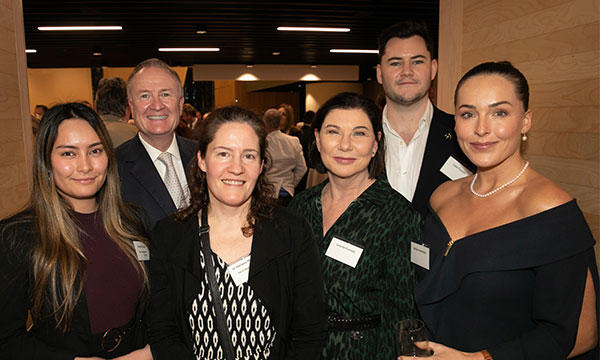It’s no secret to any Queenslander that the resources sector has made a big contribution to our economy in recent decades – it’s helped to drive long‑term growth and created thousands of jobs for Queenslanders. Now, new Treasury analysis tells us that the resources sector has improved our state’s economic mobility as well.
Mobility is all about how easy or hard it is for a kid from a disadvantaged background to become more prosperous themselves as an adult. It’s important because it tells us if we’re handing on a better deal to the next generation, and whether we’re making sure every young Queenslander has every opportunity to succeed in life.
Data that tracks the incomes of one million people born in the late 70s and early 80s helps us see how Australia is performing when it comes to intergenerational mobility – and the Treasury paper shows that, along with Western Australia, Queensland was at the top of the table for mobility during the mining boom early last decade.
The researchers link this, in large part, to mining creating good local jobs for more Queenslanders across the economy in that period. The effect was that those kids born about 40 years ago were, as adults, earning more than those born to similarly well‑off parents in other states.
That’s not surprising – mining has long been a strong source of secure, highly‑skilled and well‑paid work. Now our task is to make sure more Australians can get similar opportunities to succeed in the future – and the resources sector will be a big part of that as well.
This is important because while Australia does pretty well on economic mobility compared to many of our international peers, there’s still plenty of room for improvement, and the headwinds that slow down mobility are only growing stronger.
The data shows that young Australians are more than 60 per cent more likely than young Americans to climb from the bottom 20 per cent of incomes to the top 20 per cent of incomes when they grow up. But even then, only about 12 per cent of Aussie kids are making that big generational leap.
And while two‑thirds of Australians in their early 30s are earning higher incomes than their parents did at the same age, that figure was 80 per cent a few generations ago. The worst decade for productivity in half a century hasn’t helped, neither has the skills shortages the previous government oversaw, or their policy of deliberate wage suppression.
All of that means we’ve got a heap of work to do in 2023 – to help get wages moving again, give more Australians the skills they need for higher‑wage jobs, and extend opportunities for economic advancement to more parts of the country.
I’m confident Queensland will play a massive role in Australia’s future economic success, just as we have in the past. And I’m confident that Queensland resources will too – because as we make the transition to a net‑zero future, our natural resources will become more important, not less.
Queensland can help power the country with its solar, wind and hydrogen – and help make the clean energy technologies the world needs with its bauxite, copper and nickel.
And through all of that, there are huge opportunities to create new, high‑skill jobs up and along the value chain – through processing, refining and manufacturing.
That’s why so much of the Albanese Government’s agenda is focused on helping more people take advantage of these opportunities – with more university places, fee‑free TAFE, investments in cleaner and cheaper energy, and growing our manufacturing base.
And a big part of my focus this year – in the May Budget and beyond – will be working on ways to tackle disadvantage that is still too entrenched in some parts of our country.
The Treasury’s analysis also shows that where we grow up and who we grow up around can have a big impact on our chances in life. And barriers that affect someone’s geographic mobility – like a lack of affordable housing where the jobs are, or limited access to reliable transport – can put a ceiling on their potential as well.
I know that from my own part of Queensland – in Logan, the place I grew up in, still live in and love. I see heaps of kids that have all the intelligence and determination and ambition they need to go far. Lots thrive, but many can’t because of the big barriers they face early in life.
That doesn’t just hurt them – it hurts all of us. If we’re not utilising the full potential of all our people, then our economy isn’t growing as strongly or as sustainably as it can.
I think we all want to believe that every generation can do better than the one before it, and that where you start out in life shouldn’t determine how high you can climb. But even in as country as prosperous as ours, this still isn’t the case for too many.
We need to do more and work harder to change that – and in 2023, we will.
Not just because it’s good for intergenerational mobility, but because it’s good for the whole economy.








